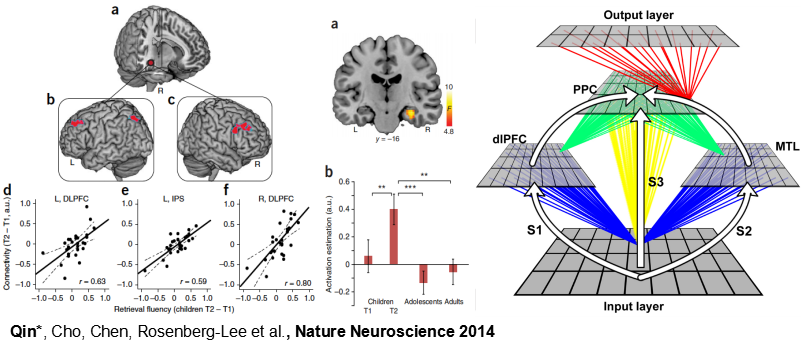
The importance of the hippocampal system for rapid learning and memory is well recognized, but its contributions to a cardinal feature of children’s cognitive development—the transition from procedure-based to memory-based problem-solving strategies—are unknown. Here we show that the hippocampal system is pivotal to this strategic transition. Longitudinal functional magnetic resonance imaging (fMRI) in 7–9-year-old children revealed that the transition from use of counting to memory-based retrieval parallels increased hippocampal and decreased prefrontal-parietal engagement during arithmetic problem solving. Longitudinal improvements in retrieval-strategy use were predicted by increased hippocampal-neocortical functional connectivity. Beyond childhood, retrieval-strategy use continued to improve through adolescence into adulthood and was associated with decreased activation but more stable interproblem representations in the hippocampus. Our findings provide insights into the dynamic role of the hippocampus in the maturation of memory-based problem solving and establish a critical link between hippocampal-neocortical reorganization and children’s cognitive development.








